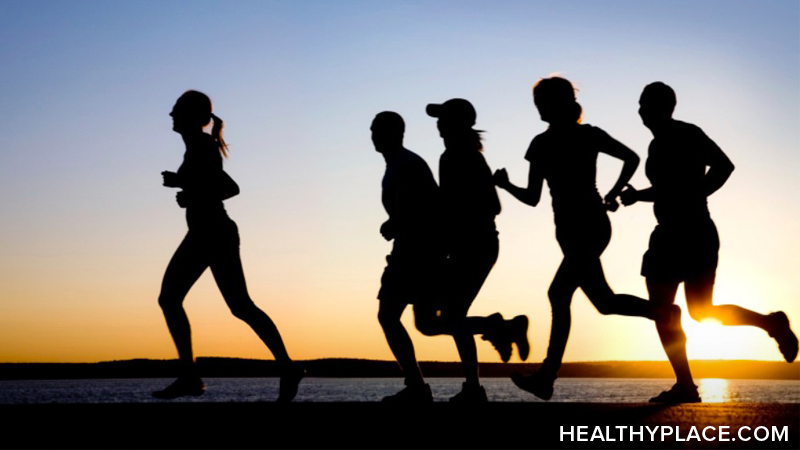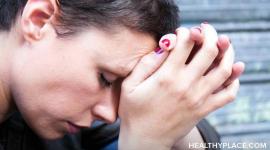Does Exercise Really Make a Difference?

For people with bipolar disorder, exercise can help manage moods, possibly reduce the amount of medications you need and end social isolation.
Gold Standard for Treating Bipolar Disorder (part 14)
The most important fact to know about exercise and bipolar disorder is that regular exercise can change brain chemicals. This means that there is a direct correlation between how much exercise you get and how many mood swings you have. Technically, even something as easy and inexpensive as walking can increase serotonin, the neurotransmitter that affects moods, release endorphins and improve your physical health so that your body is better able to deal with medications side-effects. For some people, regular exercise can significantly change the amount of medications needed to manage the illness by either reducing doses or eliminating the need for medications such as anti-anxiety medications. Because of all of this, it's important not to take exercise lightly. For example, you may think that walking twenty minutes a day could not possibly help with severe depression, but well-documented research shows that it can.
What if I Feel Too Sick to Exercise?
As anyone with bipolar disorder knows, the illness can feel so debilitating that any extra effort feels impossible. The important thing to realize is that feeling that something is impossible is not the same thing as something being truly impossible. Just as mania makes you feel you can do anything (and that you may even hurt yourself trying), depression makes you feel you can't do anything. You will have to override these feelings to get started in order to reap the benefits of exercise. The first step is deciding you want to get better, even when depression is telling you that you that you can't.
Exercise Can End Social Isolation
Many people with depression tend to isolate themselves from the world. This is a problem as isolation can dramatically increase depression symptoms. Exercising with a partner or group can positively impact your depression by getting you out in public where there is light, fresh air and positive company. It helps if you create a particular time to either walk with someone or attend a class. When someone else is depending on you to meet them, this increases your chances of making the appointment.
As with anything you do when you're depressed, it's important to remember that you probably may not want to see people when you're sick. If you wanted to get out and be with people and have fun, you wouldn't be depressed! The fact is that when isolation is caused by depression, it's up to you to break the cycle and force yourself to take action no matter how you feel. The only way to get better is to work at it and exercising with a partner or group is an excellent way to start. Remember, you don't have to want to do it. You just have to do it. You can then praise yourself and focus on the rewards the next time you have to go out.
next: Is Bright Light Exposure Good For Bipolar Disorder? (part 15)
APA Reference
Fast, J.
(2009, February 13). Does Exercise Really Make a Difference?, HealthyPlace. Retrieved
on 2024, June 20 from https://www.healthyplace.com/bipolar-disorder/bipolar-treatment/benefits-of-exercise-when-you-have-bipolar-disorder-gsd


